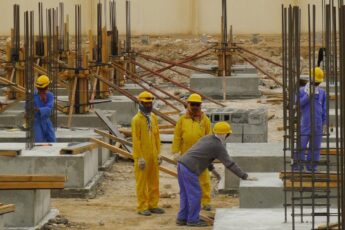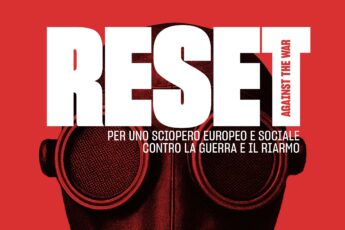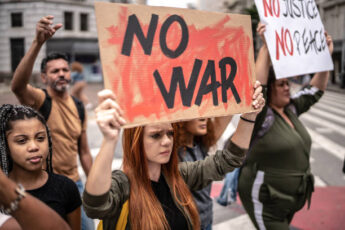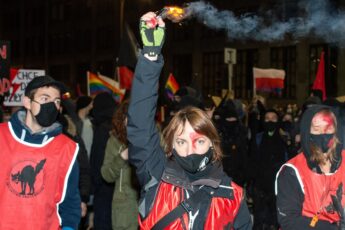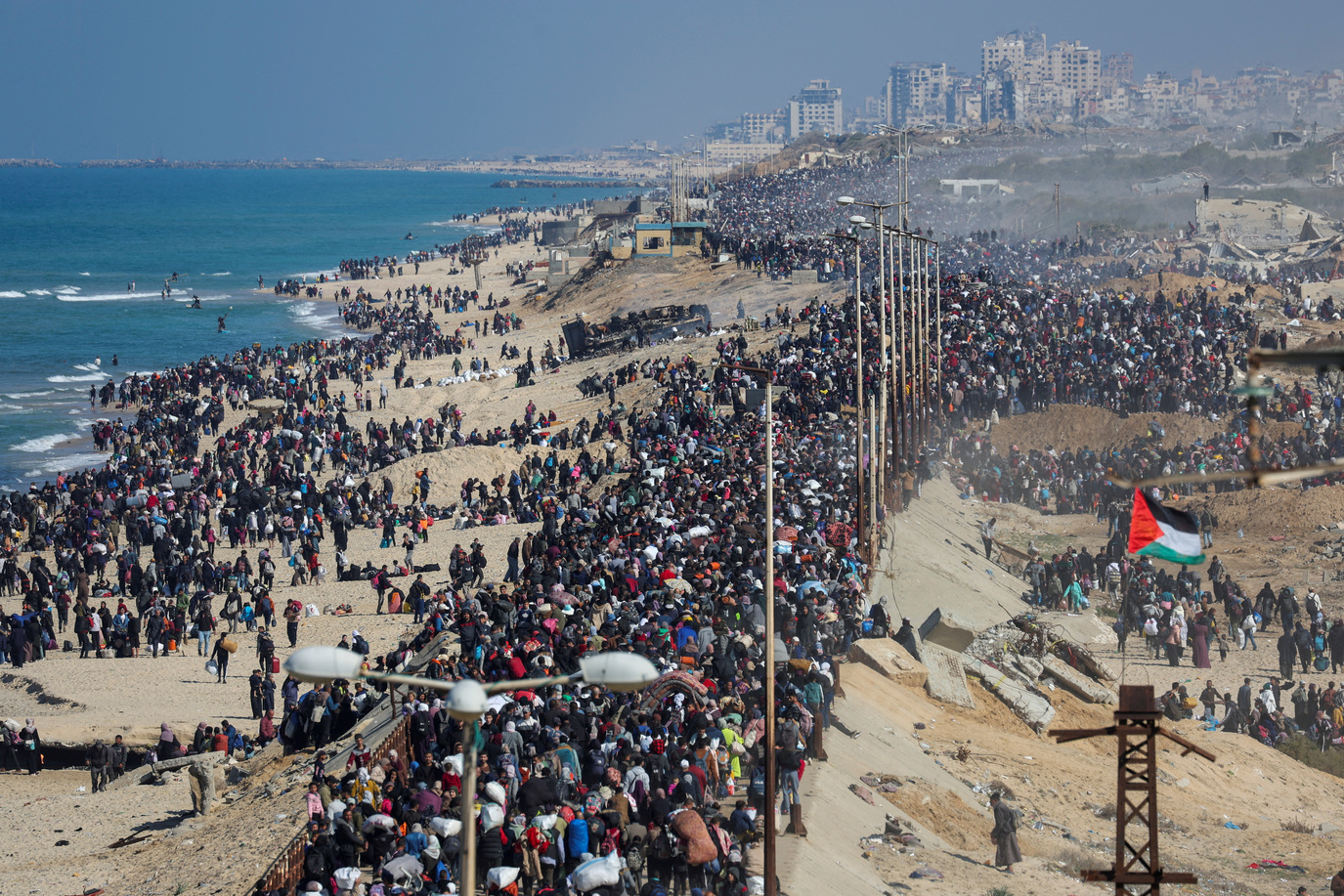
by PERMANENT ASSEMBLY AGAINST THE WAR
The fall of the Assad’s regime in Syria; the ceasefire and the hostage deal in Gaza; the thin and contested opening towards a peace agreement between Russia and Ukraine: many things have happened in the last two months. They have changed the conditions and possibilities of struggle against the war and its deadly and social effects on the battlefields and beyond, but they have not erased the war from our horizon. We have to face these changes (as well as Trump’s victory in the US elections), in order to reshape our common understanding of the transnational frame of our initiative, and how to organize against the Third World War.
Like hundreds of thousands of people who celebrated the fall of Assad, a few weeks ago we welcomed the end of his dictatorship, whose power was based on violence and oppression. Like many, we did not align with the Hayat Tahrir al-Sham army, or with the Turkish army that supported HTS, but we saw in the process of establishing a new government the possibility for taking back the space for workers, men, women and lgbtq+ people, to struggle against any form of religious, ethnic, political and patriarchal oppression. During the last weeks, the measures taken in Syria against women to limit their rights, and the attacks against the autonomous project in Rojava clearly mark that this future of struggle and liberation is more than ever a crucial battleground. Placed at the point of intersection of conflicting interests for the control of resources, living labor and borders – interests cultivated by Russia and Israel, Hezbollah, and Iran, the US and the Islamic State –, the struggles for freedom in Syria always risks being silenced and crushed by the war. In direct connection with what is happening in Syria, Erdogan’s government is trying to manage the opening of a “peace process” with the PKK without giving up with its politics of violent and racist persecution of the Kurdish political opposition in Turkey, and without renouncing to its ambition to stifle the Rojava project and bring the autonomous territories under the Turkish army control. Meanwhile, another war front is heated up again, as the revived conflict for natural resources in DR Congo is added to the mayhem in central Africa (Sudan, etc.).
This Third World scenario, which makes geopolitics the only relevant issue, and the States the only relevant actors, the struggles against oppression and exploitation are daily repressed and silenced by governments which need to maintain their apparent unity and compactness. The struggles of women and Lgbtq+ people are taking place every day in both Turkey and Iran, where an increasing number of workers’ struggles and strikes are making the regime tremble, but are invisibilized by government that want to represent the power of the State as intact on the international and regional arena. This is true also in Ukraine, where thousands of men are fleeing to avoid forced conscription. While European governments and the European Union present Ukraine as the bulwark of democracy, the Zelensky government is using more and more authoritarian measures to force men and women to join the war effort. Men are being searched in clubs, homes and streets by the army and the police to forcefully bring them to the battlefields. Freedom of dissent is under attack, as violence and authoritarianism are the always present necessity of war, also beyond the battlefields. We know that even in Russia, where thousands are sent to die to sustain the invasion, particularly from minorities and the poorer, the war faces obstacles. The voices of recruits against the dire conditions imposed by their commanders and the protest of mothers for the young soldiers treated as cannon fodder regularly evade the censorship.
The cease-fire deal has been celebrated in Gaza, the West Bank, Israel and around the world. It gives to Palestinians in Gaza the chance to breathe and recover after months of genocidal attacks. Yet, the ceasefire is not the end of the war, but the beginning of a new strategy of war now directed against the Palestinians in the West Bank. Attacks carried out by the IDF and settlers had been constant in the last years, but in the last two weeks the Israeli government has clearly shown that the destruction of Palestinian cities and refugees’ camps to enforce new settlements is the other side of the coin for the ceasefire in Gaza. This is supported by the Palestinian Authority, in a miserable and murderous fight for power against Hamas. We welcome the liberation of the hostages, both those who have been taken on October 7, and of the thousands of Palestinians arbitrarily detained and tortured by Israel in the last decades. However, we see that the deal is based on the constant threat of war, to stop Palestinians’ claims for the end of the war and liberation.
In the Third World War scenario, violence and war are used to enforce social order also outside the battlefields. We’re already witnessing the material and symbolic foundations of Trump’s promise to bring peace in the world: violence and fear, forced deportation of migrants and increasing securitization, patriarchal and racist policies, fundings and bombs for the State of Israel to continue its genocidal plan, even plans for the forced deportation of Palestinians. Similarly, the European Union is urging to give further support to Ukraine against Russia, following on NATO calls for more expenditures on armaments. Everywhere, far-right parties and groups are proposing ‘peace’ as a watchword for their nationalist and violent politics, while racism goes on being the unquestioned support for exploitation. The ‘peace’ they claim is another name for war, targeting women and lgbtq+ people, migrants and precarious workers.
As the Permanent Assembly Against the War we know that we can’t leave the claim for peace in the hands of warmonging governments and right-wing forces. We know that as long as we remain passive or take positions in favor of one or the other belligerent side of the intrastate wars, we are stuck in the friend/enemy logic imposed by the war geopolitics. We know where we stand: we are on the side of women, Lgbtq+ people and men fighting for their freedom in Syria; we are on the side of women, workers, and migrants on strike in Iran. Without being part of negotiations between states or the re-shaping of inter-state order, we support the liberation of Ocalan and all other Kurdish political prisoners in Turkey, as well as the Rojava liberation project as a political and non-nationalist one, whose feminist, ecological and democratic aims cannot be sacrificed for the sake of a new authoritarian order in the region. We oppose the war as an ever-present weapon to use against those who are fighting for freedom in Gaza, in the West Bank and wherever the war manifests its effects of impoverishment and oppression. We stand with Ukrainian deserters, who refuse to be exploited as a military labor-force, and Russians who try to escape the meatgrinder of the war. In the last two months, Ukrainian war deserters have organized protests in Germany, Italy and France. And, among the militarized Israeli society, despite the overwhelming support for IDF, there are a number of youths who refuse the war and openly declare themselves as refuseniks. Our support for war resistors is of the utmost importance, as they are resisting states, militarisation and war.
We know that scattered struggles against the war are taking place everywhere: where arms transfers are blocked, where demonstrations against the arms industry are organized, where students refuse academic agreements that support the Israeli war in Palestine. Yet, solidarity and boycott are not enough, and we still need more to build the collective, transnational strength necessary to fight for a peace. A peace that is not made by the States for the profit of transnational capital, and at the expense of women and lgbtq+ people, workers and migrants. The question of how we can connect into a transnational social movement the everyday struggles against patriarchal violence, for better wages and against exploitation, for the freedom of movement and for climate justice with an active refusal of war is still our concern. We must ask this question, if we concretely want to refuse the social and political violence that the war imposes on us as an ordinary practice to stifle social struggles. We must ask this question if we aim to refuse the politics of death, which we see in Gaza, in Ukraine, and on all militarized borders. A collective answer to this question is needed if we want to give the life we are fighting for the meaning of freedom from violence, from exploitation, from racist and patriarchal oppression.


